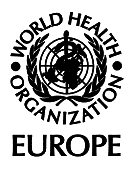
Geneva, Copenhagen, Rome,
17 July 2002
Joint effort for transport
sustainable for health and the environment
Launching of the Transport,
Health and Environment Pan-European Programme (THE PEP)
as a new partnership on the road to the World Summit on Sustainable Development
"Efficient transport is essential for the development
of international trade. At the same time, it is clear that the continuing
expansion of transport demand, heavily dominated by road transport, raises
serious concerns about the long term sustainability of present mobility trends,"
said Mrs Brigita Schmögnerová, Executive Secretary of the United
Nations Economic Commission for Europe (UNECE), at the opening of the Second
High-level Meeting on Transport, Environment and Health (http://www.thepep.org).
The Meeting was jointly organized by UNECE and the WHO Regional Office for
Europe and held at the Palais des Nations in Geneva on 5 July 2002.
The Meeting's 120 participants, including ministers responsible for transport,
the environment and health ministers, decided to establish the Transport,
Health and Environment Pan-European Programme (THE PEP). THE PEP streamlines
and consolidates WHO and UNECE activities on transport, the environment and
health, establishing a new intergovernmental body in which these three sectors
are equally represented. This will result in the more effective use of resources
and better coordination of efforts at the international and national levels.
In the European Union (EU), passenger and freight transport has more than
doubled over the past 25 years and private car ownership is approaching the
figure of one car for every two inhabitants, accounting for more than 80%
of traffic volume. These trends, closely linked to growing incomes and the
increasing number of households, are even more alarming in a number of countries
with economies in transition, where individual passenger transport is widely
seen as an expression of personal freedom and economic success. Unless corrective
measures are taken, these trends may further aggravate environmental and health
problems, particularly those related to air pollution, noise and land use.
"According to a recent WHO report, over 100 000 premature deaths per
year in Europe are estimated to be attributable to air pollution with particulate
matter," adds Dr Marc Danzon, WHO Regional Director for Europe. "An
important part of these deaths can be attributed to emissions from transport,
especially in urban areas and principally in countries in transition."
In Europe, traffic accidents have high costs. Each year, they kill about
120 000 people and cause some 2.5 million injuries. In the newly independent
states (NIS) of the former USSR, on average, mortality rates from traffic
accidents are more than twice those reported by the Nordic countries. In the
EU, the cost of accidents is estimated to be about 2% of the gross domestic
product.
THE PEP is the means chosen to tackle these important challenges. It will
focus on the priorities on which further work by the international community
is most needed and could make the biggest impact: integrating environmental
and health aspects into policies and decisions on transport, shifting demand
towards more sustainable modes of transport and including arrangements for
sustainable transport in urban planning. THE PEP will also give special attention
to the needs of the NIS and south-eastern European countries, and to areas
of particular environmental sensitivity.
At the Second High-level Meeting, Mrs Schmögnerová called for
the mobilization of the "efforts of all countries of the UNECE region
towards the effective implementation of the priority activities highlighted
in THE PEP, without losing any time". She emphasized that "THE PEP
will also contribute to strengthening the implementation of Agenda 21 adopted
at the Rio Conference". Accordingly, the participants decided to propose
this initiative as one of the partnerships to be launched at the World Summit
on Sustainable Development (http://www.johannesburgsummit.org/),
which will take place in Johannesburg from 26 August to 4 September 2002.
"This is a remarkable step forward," concludes Dr Danzon, "confirming
and strengthening the commitments to attaining transport sustainable for environment
and health that ministers made in Vienna in 1997, with the adoption of the
Vienna Declaration and the UNECE Programme of Joint Action on Transport and
Environment (http://www.thepep.org),
and in London in 1999, with the adoption of the WHO Declaration of the Third
Ministerial Conference on Environment and Health and the Charter on Transport,
Environment and Health (http://www.euro.who.int/AboutWHO/Policy/20010825_2)."
For more information please contact:
TECHNICAL INFORMATION:
Tea Aulavuo
Focal Point for Transport and the Environment
Environment and Human Settlements Division
United Nations Economic Commission for Europe
Palais des Nations, Office 411
CH - 1211 Geneva 10, Switzerland
Tel.: + 41(0)22 917 17 23
Fax: + 41(0)22 917 01 07
E-mail: [email protected]
Francesca Racioppi
Transport Environment and Health
WHO European Centre for Environment and Health
Rome Operational Division
Via Francesco Crispi, 10
I-00187 Rome, Italy
Tel.: +39 06 4877545, Fax: +39 06 4877599
E-mail: [email protected] |
PRESS INFORMATION:
Jean Michel Jakobowicz
Public Information Officer
United Nations Economic Commission for Europe
Palais des Nations, Office 356
CH-1211 Geneva 10, Switzerland
Tel.: +41(0)22 917 44 44
Fax: +41(0)22 917 05 05
E-mail: [email protected]
Cristiana Salvi
Technical Officer for Communication and Advocacy
WHO European Centre for Environment and Health
Rome Operational Division
Via Francesco Crispi, 10
I-00187 Rome, Italy
Tel.: +39 06 4877543, mobile: +39 388 6098878
Fax: +39 06 4877599
E-mail: [email protected]
Press releases from UNECE and WHO Regional Office for Europe can be found on their Web sites (http://www.unece.org and http://www.euro.who.int). |
Ref: ECE/GEN/02/18